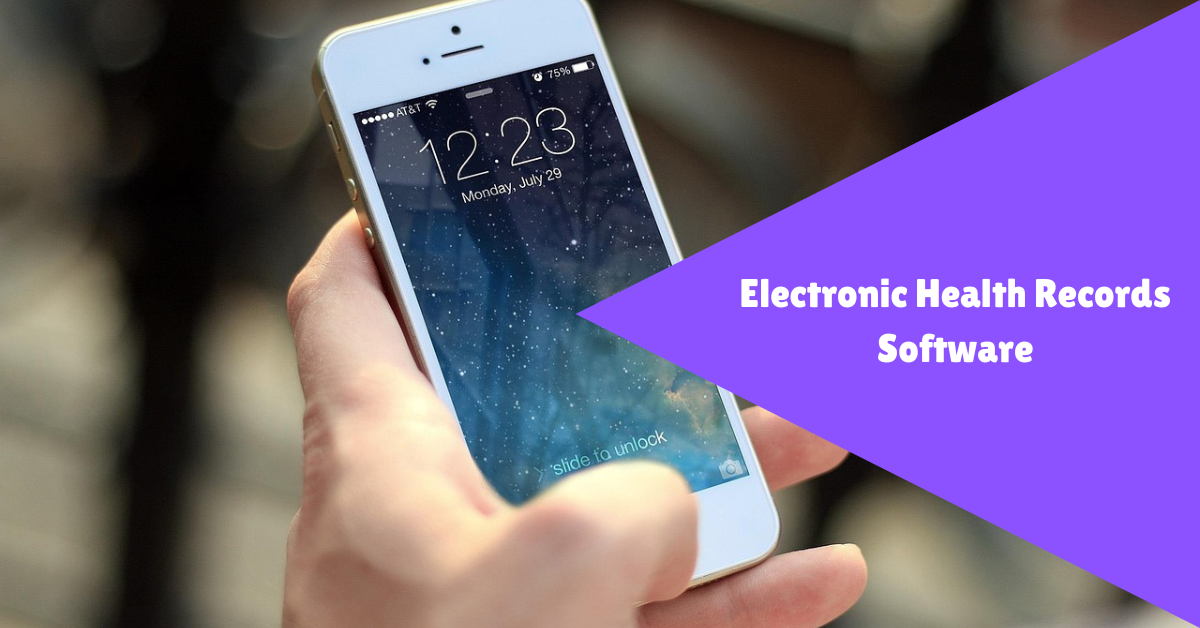In today’s digital era, electronic health records software has become a game-changer in the healthcare industry. Designed to store and manage patient information digitally, EHR systems help clinics, hospitals, and individual practitioners streamline workflows, improve care quality, and ensure data accuracy.
Whether you’re a healthcare provider, clinic manager, or hospital IT decision-maker, understanding the role and impact of electronic health records software is crucial in 2025 and beyond.
What is Electronic Health Records Software?
Electronic health records software (EHR) is a digital tool that stores patients’ medical histories, diagnoses, treatment plans, lab results, prescriptions, and more—all in one place. It replaces paper-based records and enables real-time access to accurate patient data.
Benefits of Electronic Health Records Software
Using electronic health records software brings several benefits for healthcare providers, patients, and administrators:
1. Better Patient Care
- Instant access to medical history and reports
- Reduced chances of error in diagnosis or prescription
- Improved communication between healthcare providers
2. Enhanced Workflow Efficiency
- Saves time by automating routine tasks like charting and scheduling
- Streamlines appointment booking and patient check-in
- Enables quick billing and insurance processing
3. Improved Data Security
- HIPAA-compliant data protection and access control
- Encrypted storage ensures patient confidentiality
4. Informed Decision-Making
- Data analytics and reports support evidence-based decisions
- Alerts for drug interactions and allergies
Key Features of Electronic Health Records Software
When choosing an electronic health records software, look for these essential features:
1. Patient Chart Management
- Complete patient profiles with medical history, vitals, and notes
2. Scheduling & Appointments
- Integrated calendar for doctors and patients
- Automatic reminders via SMS/email
3. Billing & Claims Management
- Insurance integration
- Automated invoice generation
4. Lab Integration
- Order and receive diagnostic reports directly from labs
5. Mobile & Cloud Access
- Access records on the go
- Multi-device support for remote consultations
Electronic Health Records Software Trends in 2025
The healthcare technology landscape is evolving rapidly. Here’s how electronic health records software is keeping up:
1. Telehealth Integration
- EHR platforms now support video consultations and remote monitoring
2. AI & Predictive Analytics
- Intelligent recommendations for treatment plans and early detection
3. Interoperability & Data Sharing
- Seamless data exchange between hospitals, labs, and pharmacies
4. Cloud-Based EHR Systems
- More clinics are adopting cloud EHRs for scalability and cost savings
Who Needs Electronic Health Records Software?
- Private clinics and solo practitioners
- Multi-specialty hospitals
- Pediatricians and family doctors
- Government and corporate healthcare centers
Whether you operate a single clinic or a hospital chain, electronic health records software is essential to run a smart, efficient, and patient-friendly medical practice.
How to Choose the Right Electronic Health Records Software?
1. Determine Your Needs
- Consider the size of your practice, number of users, and specialties.
2. Check for Compliance
- Ensure the software follows local regulations like HIPAA or India’s DISHA.
3. Prioritize Usability
- Look for a user-friendly interface with minimal training required.
4. Assess Support & Updates
- Choose a provider that offers regular updates and 24/7 support.
How KidsCur Can Help You?
In 2025, electronic health records software is no longer a luxury—it’s a necessity. With improved efficiency, better patient care, and robust security, adopting an EHR system helps modernize your healthcare delivery and position your practice for future growth.
If you’re looking to implement a reliable EHR solution, now is the perfect time to upgrade. Download the KidsCur app now!
FAQs
Q 1: What is electronic health records software used for?
Answer:
Electronic health records software is used to digitally store and manage patient information such as medical history, prescriptions, lab results, and diagnoses. It helps healthcare providers access data quickly, improve care quality, and streamline administrative tasks.
Q 2: Is electronic health records software secure?
Answer:
Yes, modern electronic health records software is built with strong security measures, including encryption, access control, and regulatory compliance (like HIPAA). These features ensure that patient data remains confidential and protected from unauthorized access.
Q 3: Can small clinics use electronic health records software?
Answer:
Absolutely. Many electronic health records software solutions are designed specifically for small to mid-sized clinics. These systems are cost-effective, easy to use, and scalable, making them ideal for private practices, pediatricians, and individual healthcare providers.


